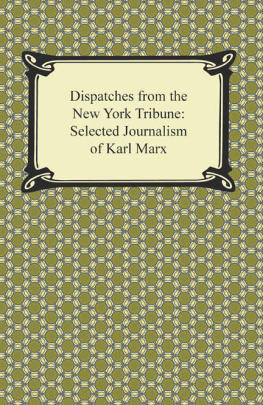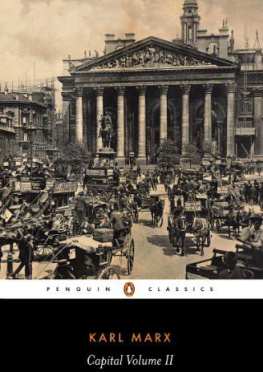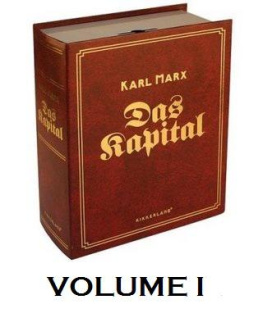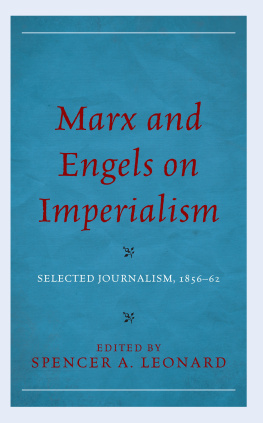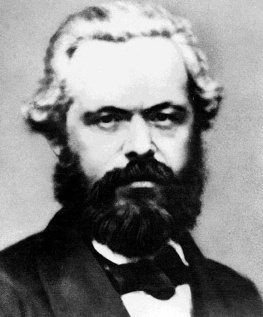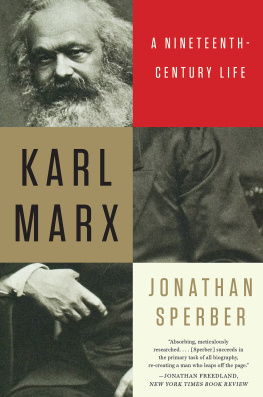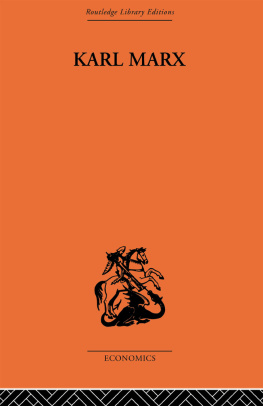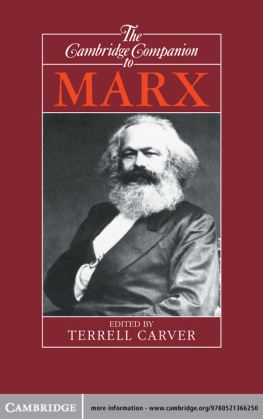DISPATCHES FOR THE NEW YORK TRIBUNE: SELECTED JOURNALISM OF KARL MARX
BY KARL MARX
Print ISBN 13: 978-1-4209-5015-1
eBook ISBN 13: 978-1-4209-5016-8
This edition copyright 2014
Please visit www.digireads.com
CONTENTS
CHINA
Revolution in China and In Europe
Published June 14, 1853
A most profound yet fantastic speculator on the principles which govern the movements of Humanity was wont to extol as one of the ruling secrets of nature what he called the law of the contact of extremes. The homely proverb that "extremes meet" was, in his view, a grand and potent truth in every sphere of life; an axiom with which the philosopher could as little dispense as the astronomer with the laws of Kepler or the great discovery of Newton.
Whether the "contact of extremes" be such a universal principle or not, a striking illustration of it may be seen in the effect the Chinese revolution seems likely to exercise upon the civilized world. It may seem a very strange, and a very paradoxical assertion that the next uprising of the people of Europe, and their next movement for republican freedom and economy of Government, may depend more probably on what is now passing in the Celestial Empirethe very opposite of Europethan on any other political cause that now existsmore even than on the menaces of Russia and the consequent likelihood of a general European war. But yet it is no paradox, as all may understand by attentively considering the circumstances of the case.
Whatever be the social causes, and whatever religious, dynastic, or national shape they may assume, that have brought about the chronic rebellions subsisting in China for about ten years past, and now gathered together in one formidable revolution the occasion of this outbreak has unquestionably been afforded by the English cannon forcing upon China that soporific drug called opium. Before the British arms the authority of the Manchu dynasty fell to pieces; the superstitious faith in the eternity of the Celestial Empire broke down; the barbarous and hermetic isolation from the civilized world was infringed; and an opening was made for that intercourse which has since proceeded so rapidly under the golden attractions of California and Australia. At the same time the silver coin of the Empire, its lifeblood, began to be drained away to the British East Indies.
Up to 1830, the balance of trade being continually in favour of the Chinese, there existed an uninterrupted importation of silver from India, Britain and the United States into China. Since 1833, and especially since 1840, the export of silver from China to India has become almost exhausting for the Celestial Empire. Hence the strong decrees of the Emperor against the opium trade, responded to by still stronger resistance to his measures. Besides this immediate economical consequence, the bribery connected with opium smuggling has entirely demoralized the Chinese State officers in the Southern provinces. Just as the Emperor was wont to be considered the father of all China, so his officers were looked upon as sustaining the paternal relation to their respective districts. But this patriarchal authority, the only moral link embracing the vast machinery of the State, has gradually been corroded by the corruption of those officers, who have made great gains by conniving at opium smuggling. This has occurred principally in the same Southern provinces where the rebellion commenced. It is almost needless to observe that, in the same measure in which opium has obtained the sovereignty over the Chinese, the Emperor and his staff of pedantic mandarins have become dispossessed of their own sovereignty. It would seem as though history had first to make this whole people drunk before it could rouse them out of their hereditary stupidity.
Though scarcely existing in former times, the import of English cottons, and to a small extent of English woollens, has rapidly risen since 1833, the epoch when the monopoly of trade with China was transferred from the East India Company to Private commerce, and on a much greater scale since 1840, the epoch when other nations, and especially our own, also obtained a share in the Chinese trade. This introduction of foreign manufactures has had a similar effect on the native industry to that which it formerly had on Asia Minor, Persia and India. In China the spinners and weavers have suffered greatly under this foreign competition, and the community has become unsettled in proportion.
The tribute to be paid to England after the unfortunate war of 1840, the great unproductive consumption of opium, the drain of the precious metals by this trade, the destructive influence of foreign competition on native manufactures, the demoralized condition of the public administration, produced two things: the old taxation became more burdensome and harassing, and new taxation was added to the old. Thus in a decree of the Emperor, dated Peking, Jan 5 1853, we find orders given to the viceroys and governors of the southern provinces of Wu-chang and Han-Yang to remit and defer the payment of taxes, and especially not in any case to exact more than the regular amount; for otherwise, says the decree, "how will the poor people be able to bear it?" And "Thus, perhaps," continues the Emperor, "will my people, in a period of general hardship and distress, be exempted from the evils of being pursued and worried by the tax-gatherer." Such language as this, and such concessions we remember to have heard from Austria, the China of Germany, in 1848.
All these dissolving agencies acting together on the finances, the morals, the industry, and political structure of China, received their full development under the English cannon in 1840, which broke down the authority of the Emperor, and forced the Celestial Empire into contact with the terrestrial world. Complete isolation was the prime condition of the preservation of Old China. That isolation having come to a violent end by the medium of England, dissolution must follow as surely as that of any mummy carefully preserved in a hermetically sealed coffin, whenever it is brought into contact with the open air. Now, England having brought about the revolution of China, the question is how that revolution will in time react on England, and through England on Europe. This question is not difficult of solution.
The attention of our readers has often been called to the unparalleled growth of British manufactures since 1850. Amid the most surprising prosperity, it has not been difficult to point out the clear symptoms of an approaching industrial crisis. Notwithstanding California and Australia, notwithstanding the immense and unprecedented emigration, there must ever, without any particular accident, in due time arrive a moment when the extension of the markets is unable to keep pace with the extension of British manufactures, and this disproportion must bring about a new crisis with the same certainty as it has done in the past. But, if one of the great markets suddenly becomes contracted, the arrival of the crisis is necessarily accelerated thereby. Now, the Chinese rebellion must, for the time being, have precisely this effect upon England. The necessity for opening new markets, or for extending the old ones, was one of the principle causes of the reduction of the British tea-duties, as, with an increased importation of tea, an increased exportation of manufactures to China was expected to take place. Now, the value of the annual exports from the United Kingdom to China amounted, before the repeal in 1834 of the trading monopoly possessed by the East India Company, to only 600,000; in 1836, it reached the sum of 1,326,388; in 1845, it had risen to 2,394,827; in 1852 it amounted to about 3,000,000. The quantity of tea imported from China did not exceed, in 1793, 16,167,331 lbs.; but in 1845, it amounted to 50,714,657 lbs.; in 1846, to 57,584,561 lbs.; it is now above 60,000,000 lbs.
Next page
